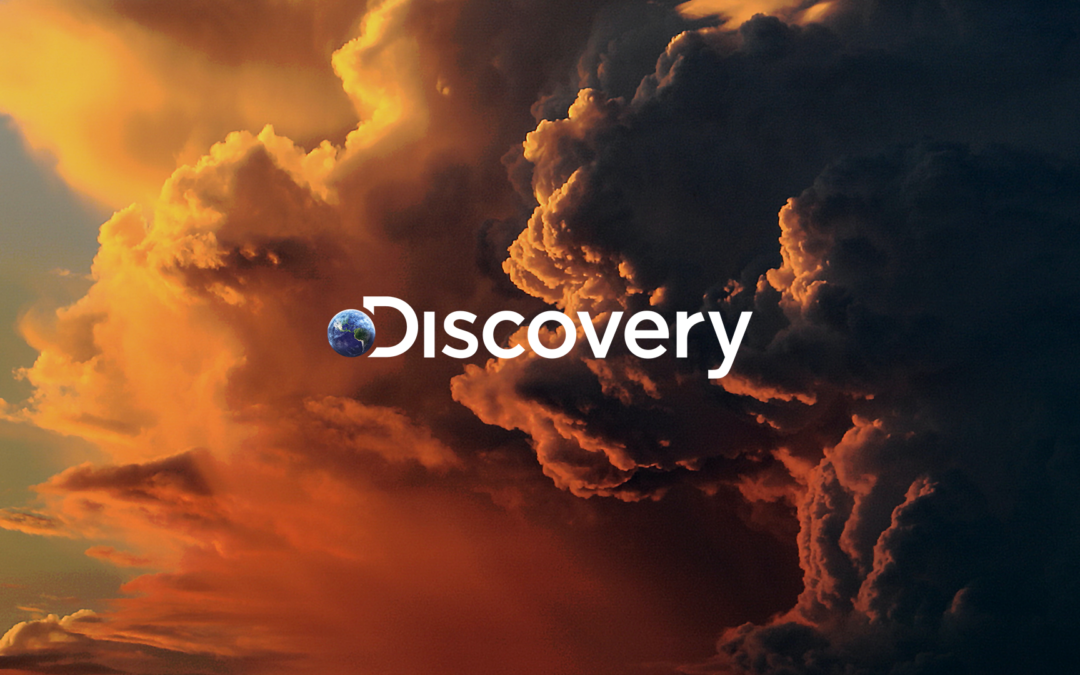When we connected for the interview about KLM‘s finance transformation journey, you spotted The School of Life’s “An Emotional Education” on the bookshelf behind me. And it triggered a rich conversation about the books that have most influenced you. And it all began with your Professor at The London Business School?
Yes, that was in 2007. I was living in London and attending The London Business School. In one of the courses, there was a professor, Professor Raman Uppal. He was elected as the school’s favorite professor for a couple of years in a row. So I took his course on international finance. First of all, because I wanted to learn about international finance, but secondly, at the end of each lecture, he shared a life lesson, or he gave his view on life.
Professor Uppal also gave a list of 20 books that he recommended. The first one was Mitch Albom’s, “Tuesdays with Morrie”. I bought it and I started to read it. It triggered a lot of thoughts and ideas for me. When I got back to The Netherlands, this book inspired me to commit to my own personal coaching journey. I did quite a number of personal coaching sessions. I asked the coach about which books to read. I wasn’t interested in the 20 most popular leadership books, but I wanted to know what to read for my own personal journey. I searched for a long time, what fits me and what helps for me to take steps forward.
Another book that made an impact on me was Eric Weinberg’s, “Touch the Top of the World”. It’s about a young boy turning blind, and then wants to climb the Mount Everest. He achieved it. A real story.
Then the third book was “The Power of Now” by Eckhart Tolle, a very famous book. The first time I went to read it, I threw it away. I didn’t understand it. I got annoyed by not understanding what he meant. (Then 10 years later, I read it again and it made sense to me. So apparently something happened in between). I’ve now read many books and watched many webinars and TED Talks and you can see there’s a common line that runs through them. During the extended lockdown here in The Netherlands during corona, I think I read more than in the five years before. For self-reflection and to further develop myself.
So Professor Uppal really inspired you to start your own development journey, one that continues to this day. To take a step back…after you had started reading, you then had the opportunity to do an executive assessment with KLM that further informed the journey you had begun?
Yes, we did an executive assessment within KLM with Spencer Stewart a couple of years ago, and that also led to some observations or areas for improvement. This triggered me to start my coaching journey and going to the next ‘S curve’ in my development. This triggered another list of books that I started to read…
You have identified what sounds like two journeys here. The personal journey inspired by your Professor in London. And then the professional journey prompted by the executive assessment with KLM. How have these two journeys interacted? Have they come together?
Yes, they definitely work together. There’s a clear common thread running through the books I started reading in London and then what I got from my personal assessment and coaching journey.
My coach worked with a three-phase framework on social engagement. It helps you identify if you’re in balance, in fight/flight modus or if you’re more in crisis mode. A lot of my reading was about going from balance to fight/flight. Linking back to my personal reading – “The Power of Now” is very much about being in “the now” and not thinking 10 steps ahead. If you’re constantly thinking ahead and assessing things and making up scenarios in your mind – you just fill up with adrenaline. But if you are able to stay in the now, you can create more calm in how you respond. And you can be in the here and now for the people around you.
One of the books that I read last year was about feedback. Vivek Murthy’s “Together” is also very much about social engagement, about connecting to other people without prejudice. It’s about keeping a neutral stance to people without judging them before you really talk to them. And that was one of the lessons in “Tuesdays with Morrie”. Also Joe Dispenza, whose work I’m now connecting with more. The books I’m choosing to read all share common ground.
So would you say, for you, the journey has been about finding ways to connect back with the self to create a safe and calm space for the people you’re working with?
Correct. And related to that is how to manage energy. I noticed that at some point my work cost me a lot of energy. People would say, “but you have a very busy job”. But I knew this wasn’t the reason it was costing me so much energy. Because I also know that when I’m in the flow, I lose track of time and doesn’t cost energy. So I wanted to look deeper into that flow state and better understand what gives me energy and what costs me energy. I wanted to know why I was experiencing what I was experiencing and what I could do to bring me into a more relaxed state. Every book or TED talk or lecture I tuned into in some way connected to this key challenge. My coaching focused on this also.
In exploring this challenge, did you delve into the reasons why you have this challenge? Was part of your coaching journey about looking into how you have become who you are? Did you go that deep?
Yes, as much of it relates to how you were born and raised, the family you grew up in. If you look into all of that then you come a long way in understanding why you are where you are today and why you do what you do. It has helped me understand why I can demand so much of myself. I wouldn’t say I had demanding parents, but the environment instilled that element within me. I have demanded a lot of myself and worked very hard to achieve. But now I feel strongly that the most important thing is to realize that at some point it is okay to let go of stuff and not be overly demanding of yourself.
I’ve also reflected on how I have also been quite demanding on others. By being less harsh on myself, it also transforms how I am with others. I think the most striking observation I had last year was when I successfully let go of some stuff. And it was still okay! Nobody judged me for it. In fact by doing this I was able to still perform in the same way and I had the mental space to empower more people around me. When you trust the people around you, you have more oxygen in your system and, well, you’re a lot better to be around – as a father, a friend, a colleague.
So what do you do now when you when you feel the pressure rising? When you feel the prickles?
I listen to my body. I’m aware of how it feels – say when I feel my blood pressure increasing, or if I start breathing differently. It triggers my awareness that, hey, something is happening. Breathing is so important. I do breathing exercises and at home I listen to music. Music refreshes me.
Where are you in your journey now? How would you describe the phase you’re in now?
Right now I’d say I’m in the Joe Dispenza phase. Meditation is central to his work, but I’m not there yet.
So what are the early steps that you’re taking?
It’s baby steps. I’ve made my own mind maps of his book and that’s it for now.
I have to say, in all honesty, his book was a little it’s a different league than what I have read before, because he was very much into physics and how the brain works. I find watching the YouTube sessions with the book helps a lot. So that’s where I’m at. I’m looking forward to getting into the meditations.
Sounds wonderful. And Francis Frei came up in our last conversation. Can you tell me about how Francis Frei came on your radar and the impact she has had on you?
Last year in March, I went to Harvard for a week. She gave a lecture. And what was striking to me is that in one or two hours, she could simply explain her view on leadership, which I’m sure a lot of the other books if I would have read could not have done so. All a lot of things came together in the triangle that she drew about leadership, which is all about trust. Leadership is not about you, it’s about people. That was her first line. Her TED talk covers it in 15 minutes.
After that two hours, I went back to the hotel room and mapped it all out in a one pager. I came back to work and recommended her book, “Unleashed”. No one had heard of it here, despite it being so big in the US. So I was able to contribute to other people’s journeys as well.
And what was the first thing you started doing differently as a result of listening to her work? What was the first thing you implemented?
Not forcing things or trying to be somebody else. On a very practical note – recognizing that the moment when people start checking their phone or their email is the moment they have “left the meeting”. They’re still physically there, but they’re no longer into it. And the key is to ask myself why this is happening.
And on the leadership part, I was very much focused on trying to be myself and being honest about stuff and questioning myself. I reflected on if people would feel I am honest and open for them to be the same. It doesn’t have to be a good message every time, but at least it has to be authentic. Everyone has a “wobble” and I had the feeling that this is where my wobble was. So I really focused on improving my ability to be myself and hold space for the people around me to do the same.
That takes phenomenal courage. How did making this transformation feel for you? And how did you see people respond?
In the beginning, it’s quite difficult. As people wanted to step around difficult messages. But I noticed with my new approach, people appreciated how I was bringing things. And things never escalated. I think the other thing that I noticed is that I no longer feared these kinds of conversations. So apparently I felt comfortable with them. Because I was just being me.
We’ve covered a deep and broad personal journey in a very short amount of time. I can imagine it has made a difference in all areas of your life. The area I’m really interested in today is – how has this all fed into who you want to be as a Corporate Controller?
Well, I think the short version is that I want to be more human. A human Corporate Controller. Before I was a controller, I was in the Treasury Department, which is very much brain oriented department. And in corporate control, there is more of a talent management leadership element in it. So it’s a HR driven. My initial reflex, when I started this job was to jump into numbers and to hold on to them because I was used to doing that in the Treasury Department. And now I rely on much more than just knowing the numbers.
And I think the crisis helped me a lot, because it made me realize that there was so much work coming at me. We had talked about workload in the past and how I dealt with that, which was simply to work harder and harder to prove myself. I put the bar quite high. This crisis has helped me see that there are other ways to handle such a high workload. It got so high that I actually felt that I had no other choice than to just let go and become myself and empower the people around me to do their stuff. And it has worked. I don’t think we could have made it any other way.
I now make time to develop myself instead of being busy with the numbers all day. So it has been a long journey, if we go back to the professor 2007. I’m sure many people do it faster than me. But I think what helped me is that I, I found my own way in the books and in the lectures that fit me. And that would also I think be my be my advice for others – take the time to find the books and talks that fit you and your journey.
Top 3 things we learnt talking to Bas about his personal development journey
- Being open, honest and relaxed gives the people around you permission to be the same. And it’s better for everyone.
- Take the time to find the books and talks that best fit you and your “wobbles”. You and the people around you will all reap the rewards.
- Andre Agassi was a better tennis player than John McEnroe because he had a growth mindset! 🙂
If you’re interested in joining the Bas Brouns Book club, here are some of the books that have inspired Bas. But remember, it’s your journey. Certain books will speak to you more than others. Tune into what you need and go for it!
- De Botton, Alain, The School of Life: An Emotional Education
- Albom, Mitch, Tuesdays with Morrie
- Weihenmayer, Erik, Touch the Top of the World
- Meyer, Erin, The Culture Map
- Pink, Daniel, Drive
- Dweck, Carol, Mindset
- Wopereis, Hans, Bezieling werkt
- Frei, Francis, Unleashed : The Unapologetic Leader’s Guide to Empowering Everyone around You
- Dispenza, Joe, Breaking the Habit of Being Yourself.
- Murthy, Vivek, Together
Here is the complete list on bol.com -> Bas Brouns Book List
Lightening Round
To give you a flavor of what you might discover in the pages of these books, here is a “lightening round” with Bas, where he calls out the first thing that comes to mind on each book.
“Tuesdays with Morrie”
First reaction, only read it on Tuesdays. And this was the starting point for my journey.
“Touch the Top of The World”
Inspirational ambition. You can achieve anything
“The Culture Map”
The Bible of culture, also for the corporate world.
“Drive”
Intrinsic motivation it’s not only about what you’re paid, but what drives you.
“Mindset”
Find your growth button and when you have people apply for jobs select on growth mindset. Realizing that Andre Agassi was better tennis player than John McEnroe, because he had the growth mindset!
Yesssss! Okay. Are you ready for the next one? “Bezieling Werkt”
Oh, yeah, it’s sources of growth for any organization. Very much related to Daniel Pink’s “Drive”. It’s about what is your deepest drive? It’s not about organizational structures. It’s again about, what is your intrinsic motivation, your passion?
Francis Frei’s TED Talk.
One picture that explains leadership.
“Breaking the Habit of Being Yourself”
A tough one. Still working on it. But there is hope that I can change my mind.
And to take us right back to the beginning again, when you think of your professor Raman Uppal, what is the first thing you think of?
A mild, genuine, gentle, kind, inspirational guy who taught me so much more than international finance.
What a wonderful sounding man. A magic note to end on, thank you Bas.








